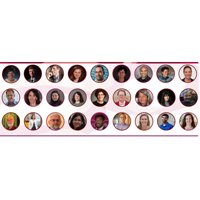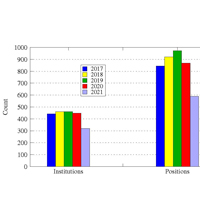CCC Council Member Chad Jenkins in NYT Article: Can We Make Our Robots Less Biased Than We Are?
Contributions to this post were provided by CCC Council member Odest Chadwicke Jenkins.
Computing Community Consortium (CCC) Council member Odest Chadwicke Jenkins (University of Michigan) was recently interviewed by the New York Times about his thoughts on the AI field’s apparent failure to make systems that are accurate for everyone. Many of today’s AI systems have biases against people of color and the broader diversity beyond the white, male, affluent and able-bodied developers of most computer and robot systems. We need to be sure that when autonomous robots make their decisions, the designer’s flaws and judgements are not “baked in.”
Robotics researchers in our community are committed to ending the injustices in how their technology is made and used. Jenkins was one of the lead organizers and writers of An Open Letter & Call to Action to the Computing Community from Black in Computing and Our Allies, produced by Black in Computing. It was signed by nearly 600 Black scientists and allies in computing and calls for realizing the aims of the civil rights movement in the computing community. The open letter calls for reforms to create unbalanced and welcoming learning and work environments and addressing the systemic and institutional racism that has deterred the participation of Black people. The open letter also recalled specific environmental challenges such as harassment of Black students by campus police officers, and constant subtle reminders from others who don’t think Black people belong.
This is just the beginning of recognizing the problem and making the commitment to address it both inside the lab and out. CCC’s 2019-2020 Fairness, Accountability, Disinformation, and Explainability (FADE) Task Force examined these overlapping areas of fairness, accountability, disinformation, and explainability within algorithms, big data, and the Internet. This year’s newly launched CCC Task Force on Radically Responsible Computing is planning to continue this work and focus on the “fairness, privacy, and responsibility for the negative outcomes of algorithms.”
Other researchers featured in this article with ties to the Computing Research Association (CRA) (CCC’s parent organization) are CRA and CRA-Widening Participation (CRA-WP) Board Member Ayanna Howard (Georgia Institute of Technology) and CRA Board Member Cindy Bethel (Mississippi State University). See the full New York Times article here.










